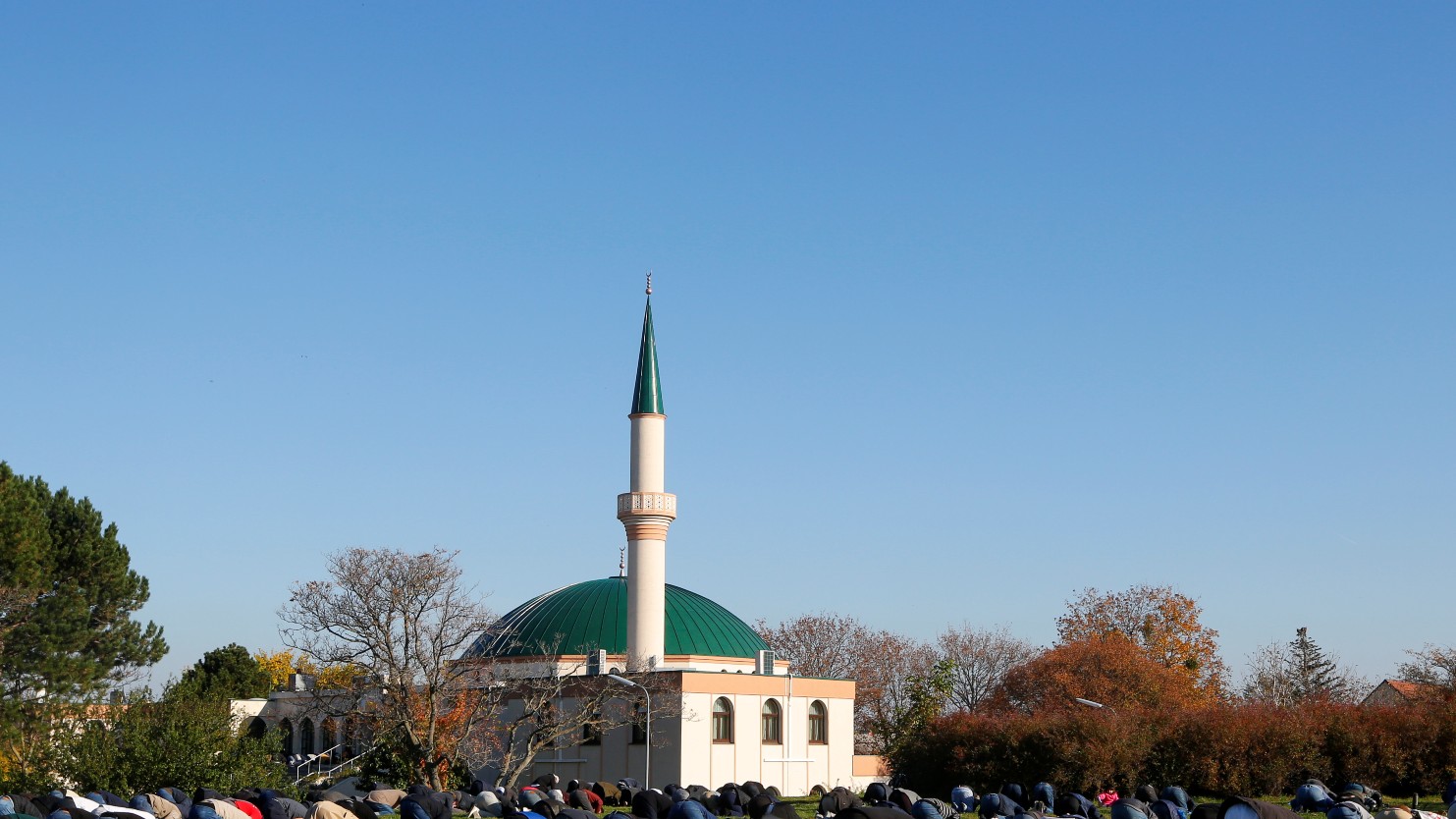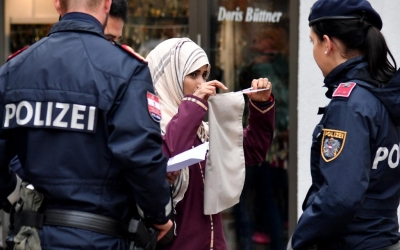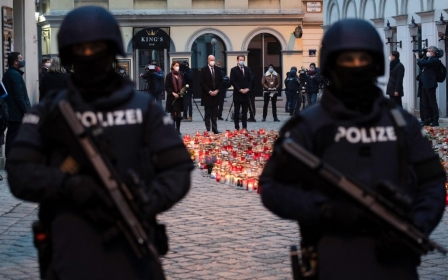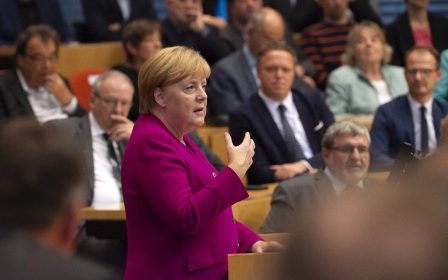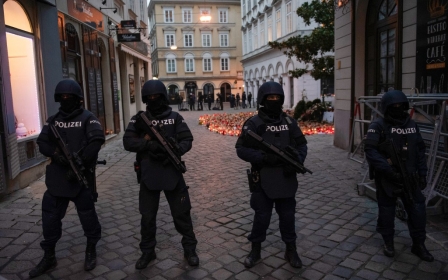How Austria's new attempt to create 'good Muslims' ignores the majority
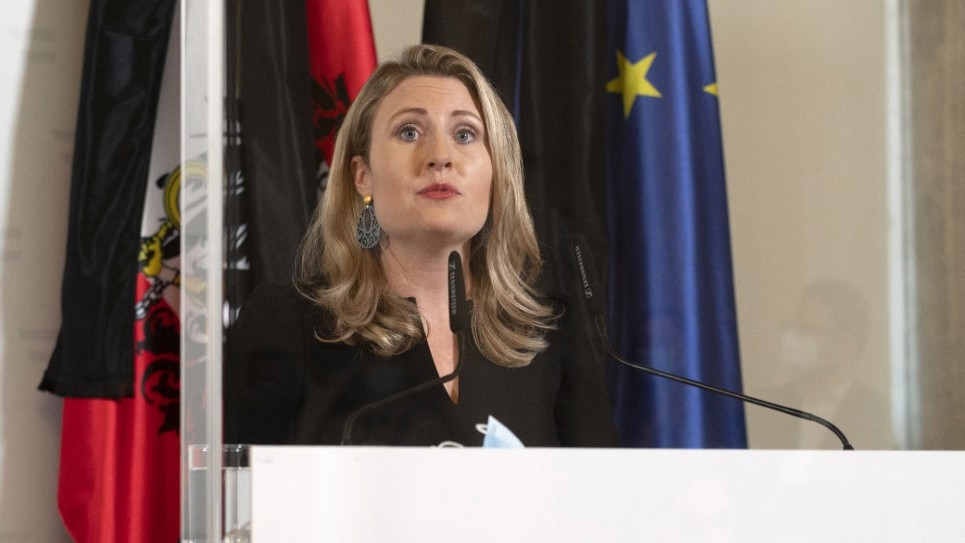
In recent years, European nation-states have attempted to take more control over the religious outlook of their Muslim populations.
After an initial agreement in the post-war years on “Embassy Islam”, which essentially left religious issues to the governments of countries whose Muslims citizens migrated to Europe, a new approach emerged in the late 1990s, propelled especially after 9/11. Interior ministries attempted to assert control over their Muslim subjects, aiming to create German, French, Dutch and other forms of “national Islam”.
Sometimes, states were directly involved in these projects. The ideas were often supported by foundations and think tanks that played a huge role within the corridors of power. One example among many is the Muslim Forum Germany, established in 2015 with support from the Konrad Adenauer Foundation, which is associated with the centre-right Christian Democratic Union.
While the domestic fight against 'political Islam' is usually lost in the courts ... a new initiative has appeared on the horizon
The forum included several advocates of anti-Muslim policies, including academic Mouhanad Khorchide, psychologist Ahmad Mansour and researcher Ralph Ghadban. It asserted that the majority of Muslims were not represented in the country, adding that it could offer politicians “another contact partner that reflects the unarticulated positions of Muslims in Germany”. But the initiative, which aimed to represent a German liberal Islam, no longer appears active.
Attempts to create similar structures to speak for the “silent majority” or self-proclaimed “liberal voices” of Islam often leave a bitter aftertaste. Austria, which has spearheaded numerous anti-Muslim policies, especially during the tenure of former Chancellor Sebastian Kurz, established the Documentation Centre Political Islam, which the country’s Islamic community warned could become an “institution of surveillance”.
New MEE newsletter: Jerusalem Dispatch
Sign up to get the latest insights and analysis on Israel-Palestine, alongside Turkey Unpacked and other MEE newsletters
Exporting the fight
Since its establishment in 2020, the centre’s annual budget has tripled to 1.7m euros ($1.8m). Austria’s integration minister, Susanne Raab, who presented the centre’s infamous “Islam map” in 2021, has also worked hard to export the domestic fight against so-called political Islam to other European countries. “Political Islam” in this context basically refers to independent community organising or critiques of the government’s policies.
The Vienna Forum on Countering Segregation and Extremism in the Context of Integration, which drew the participation of 11 countries, had its second annual meeting in December 2022. But while the domestic fight against “political Islam” is usually lost in the courts - which have rejected several key government projects, from Austria’s hijab ban in schools, to the closure of mosques, to parts of the infamous, racist Operation Luxor - a new initiative has appeared on the horizon.
Earlier this year, the Muslim Forum of Austria was established, and recently announced plans to create an Austrian Islam Conference similar to the German model, which has been harshly criticised as a means to discipline German Muslims.
Interestingly, the Muslim Forum of Austria seems to be less a grassroots group organised by ordinary Muslims, than a state-led project that wants to create more dialogue opportunities for Muslims with politics, media, churches, and academia.
According to the integration ministry, the conference and associated events will be subsidised with a budget of around 250,000 euros ($264,000) in 2023. And the forum’s leader is Khorchide, who was active in the similar German forum and also heads the advisory board of the Documentation Center Political Islam, and has previously supported the closure of mosques and the hijab ban for pupils.
Government control
Unsurprisingly, Austria’s Muslim community has harshly criticised the new institution, arguing that it has no legitimacy. The forum “wants to institutionalise the dialogue about Islam in Austria” without including the “central actors of Muslim life” in the country.
Oddly, the forum, which had never appeared in the public domain before launching its press conference, rushed to declare that it wanted to invite the Muslim community and all other Muslims to start a dialogue.
No outreach has been made to the community before. Not surprisingly, this met fierce criticism from Austrian Muslims. The forum defended itself, arguing that it did not want to represent Muslims, but rather wants to be non-partisan, showing the diversity of Muslims.
At the same time, having Khorchide as the main face of the Muslim Forum of Austria makes sense for domestic policy circles. Khorchide is an award-winning author and professor at a German university, and he has become "the soft voice of liberal Islam". But his book Islam is Mercy in real terms seems to reflect - in my opinion - only mercy for the strong, rather than the weak, thus turning liberation theology on its head and kicking the wretched of the earth when they are down.
More generally, the Muslim Forum of Austria highlights one important reality: At its centre stands the state, which heavily funds institutions that marginalise Muslims, while simultaneously supporting new groups that represent “good Muslims”.
Ultimately, this seems to be less about what "good Islam" should stand for, than about how best authorities can control what they perceive as a potentially threatening part of the population.
The views expressed in this article belong to the author and do not necessarily reflect the editorial policy of Middle East Eye.
Middle East Eye delivers independent and unrivalled coverage and analysis of the Middle East, North Africa and beyond. To learn more about republishing this content and the associated fees, please fill out this form. More about MEE can be found here.



